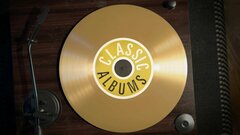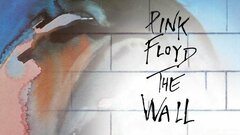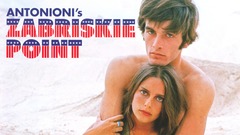Tapped by the psychedelic/progressive rock group Pink Floyd as a replacement for ailing founder Syd Barrett, guitarist David Gilmour soon became a key figure in the group's evolution from experimental musicians to international superstars through significant contributions to the band's famed 1970s output, including Dark Side of the Moon (1972), Wish You Were Here (1975) and The Wall (1979). Acclaimed for his fiery guitar work, Gilmour sought equal footing with bassist Roger Waters in penning songs for Pink Floyd, but found himself increasingly stymied by Waters' controlling nature.
He funneled some of his frustrations into a solo career, but tensions between Gilmour and Waters led to a band breakup in 1985 that remained unresolved for the better part of two decades. Gilmour took charge of Pink Floyd for much of this period, generating two hit records and subsequent world tours, before reuniting with Waters, keyboardist Rick Wright and drummer Nick Mason at London's Live 8 event in 2005. Their longstanding riff now over, Gilmour reunited with Waters on several occasions while enjoying newfound success with his first No. 1 solo album, On an Island, in 2006.
A Rock and Roll Hall of Fame member as part of Pink Floyd in 1995, David Gilmour enjoyed a long, successful and well-respected music career that lasted over a half-century. Born David Jon Gilmour on March 6, 1945 in Cambridge, England, he was the son of Douglas Gilmour, a lecturer on zoology at the University of Cambridge, and his wife, Sylvia, a teacher and film editor.
He attended the Perse School in Cambridge, and befriended Roger 'Syd' Barrett, a student at the nearby Cambridgeshire High School for Boys. The pair would often spend their lunchtime playing guitar with a classmate of Barrett's named Roger Waters. In 1962, Gilmour joined the Joker's Wild, a cover band specializing in American pop and R&B songs. The group never progressed beyond a privately pressed LP released prior to Gilmour's departure in 1966. He then joined some friends on a busking tour through Spain and France, which failed miserably and led to Gilmour's hospitalization for malnutrition.
He returned to England the following year, playing with a new version of the Joker's Wild called Bullitt. Barrett and Waters, in the meantime, had formed a group initially called The Tea Set with drummer Nick Mason and keyboardist Rick Wright. After changing their name to Pink Floyd, the group became one of the leading acts on the London underground scene, which was devoted to experimental/psychedelic rock.
The pressures of fame, as well as excessive drug use, had a deleterious effect on Barrett's mental well-being, as well as his ability to play and compose for Pink Floyd. Mason contacted Gilmour to serve as a stand-in for Barrett in concerts in order to allow the band's mercurial founder to devote his energies to the studio, much in the same manner as Bruce Johnston had been tapped by the Beach Boys to replace Brian Wilson on stage. However, it soon became evident to the members of Pink Floyd that Barrett was incapable of handling any of his musical duties, and Gilmour was soon promoted to lead guitarist while sharing vocal duties with Waters.
Gilmour's blues-influenced guitar lines soon became a key component of the band's shift from the heavy psychedelic sounds of A Saucerful of Secrets (1968), which marked his studio debut with the group, to the progressive rock of Meddle (1972) and their international breakthrough album, Dark Side of the Moon (1973). Gilmour's contributions as a songwriter grew with each subsequent album, but it became apparent to him by the release of Wish You Were Here (1975) that Waters intended to have complete control over the group, a situation which grew more evident with Animals (1977).
To combat his growing frustration, Gilmour devoted his energies to a self-titled solo album (1978), which featured members of the Joker's Wild among its lineup of players. David Gilmour broke into the Top 30 on the U.S. albums chart shortly before he served as producer on two tracks from Kate Bush's debut album, The Kick Inside (1979) and contributed to Wings' Back to the Egg (1979). But he was soon back in the Pink Floyd ranks for their most celebrated and difficult album, The Wall (1979).
The seeds of both the album itself and the growing dissent within the band were sown during the "In the Flesh" tour, which brought the band to stadiums in support of Animals. Gilmour grew increasingly antipathetic towards the scope of the tour, as well as Waters' increasingly aggressive and controlling nature. By the time the band had reconvened in the studio to record The Wall, it became clear that Waters had assumed complete control of the album, penning the majority of its songs as well as conceiving its core concept of a disillusioned rock star's mental collapse.
Gilmour would eventually co-write three songs on the album, including its standout track, "Comfortably Numb," but the recording sessions for the album were fraught with tension, most notably between Waters, producer Bob Ezrin, and Wright, who was fired or quit shortly before the record was completed.
After Pink Floyd released The Final Cut in 1983, Gilmour devoted his attentions to his second solo album, About Face (1984), which featured songwriting collaborations with Pete Townshend of the Who. He then spent the majority of the next two years working as a guest guitarist on albums by Townshend, Bryan Ferry and Supertramp, and scored a Top 10 hit as producer with "Life in a Northern Town, from the Dream Academy's self-titled debut in 1985.
That same year, Gilmour and Waters faced off in a legal battle over the rights to the Pink Floyd name. To the surprise of many, the High Court of Justice found in Gilmour's favor, allowing him to progress with the band as its new leader and principal songwriter. The resulting album, A Mometary Lapse of Reason (1987), featured Mason as one of its sound engineers rather than drummer, and Richard Wright as a hired musicians instead a core member of the band. Debuting at No. 3 in both the U.S. and U.K., it led to a successful world tour, which was documented on the live album The Delicate Sound of Thunder (1988).
Gilmour would spend the next few years pursuing both individual interests and his own health and happiness, divorcing his first wife, American model Virginia Haserbein and then marrying journalist Polly Samson, who helped him overcome a cocaine habit that reared up in the late '80s.
In 1994, Gilmour reunited with Wright and Mason for The Division Bell, which again spawned a massive international tour that, on many dates, saw the band play Dark Side of the Moon in its entirety. Following the conclusion of the tour, which was preserved for posterity on the 1995 live album Pulse, Pink Floyd ceased operations, save for their induction into the Rock and Roll Hall of Fame in 1996.
In 2005, Waters and Gilmour put aside their differences to appear with Wright and Mason at the Live 8 event in London. Though rehearsals were reportedly problematic, the set list concluded with a group hug between all four members, as well as subsequent apologies from Waters for his part in the rancor that took place during the legal difficulties in 1985. However, Gilmour deflated talk of a farewell tour, preferring instead to devote his attentions to his third solo album, On an Island (2006), which became his first Top 10 album in the United States.
The success of On an Island was followed by a sober tribute to Syd Barrett, who passed away in July of that year, in a live rendition of the early Pink Floyd hit "Arnold Layne" with David Bowie and Wright, whose subsequent death in 2008 largely rendered moot any lingering reunion plans. After teaming with electronica act The Orb to record the 2010 album Metallic Sphere, Gilmour reunited with Waters for a charity performance in 2010. Their jovial appearance together preceded an appearance by Gilmour performing "Comfortably Numb" on Waters' 2011 tour with The Wall. The show concluded with Gilmour, Waters and Mason appearing together to play an acoustic version of "Outside the Wall," which marked the first reunion of the last surviving members of Pink Floyd since 2005.
By Paul Gaita

















































